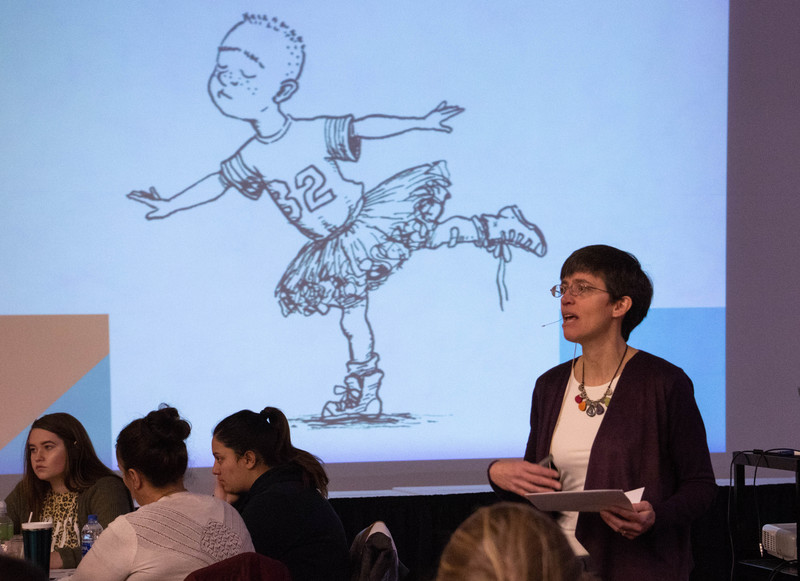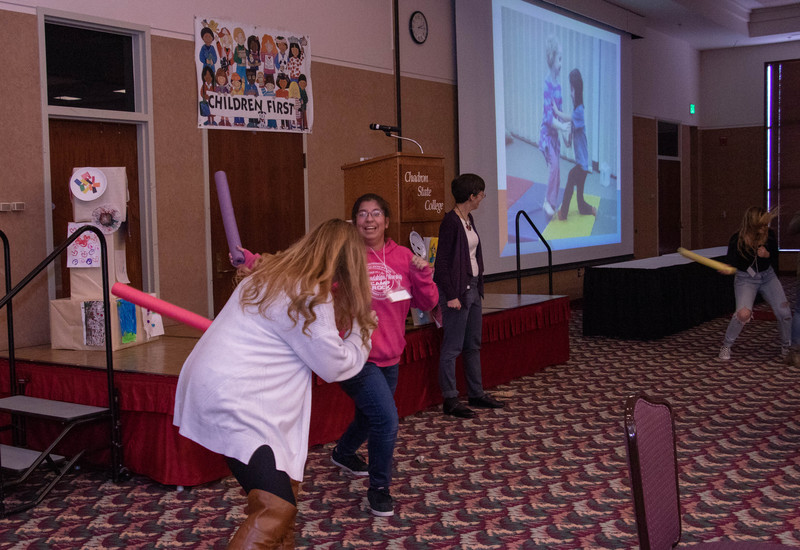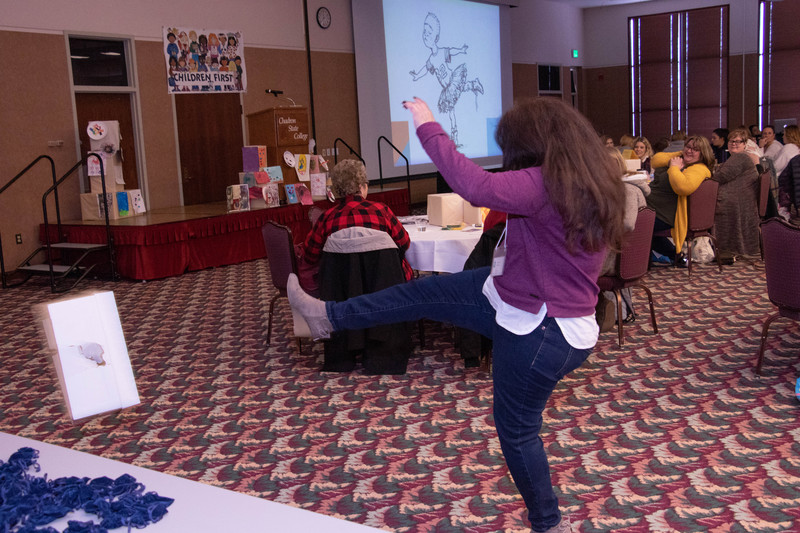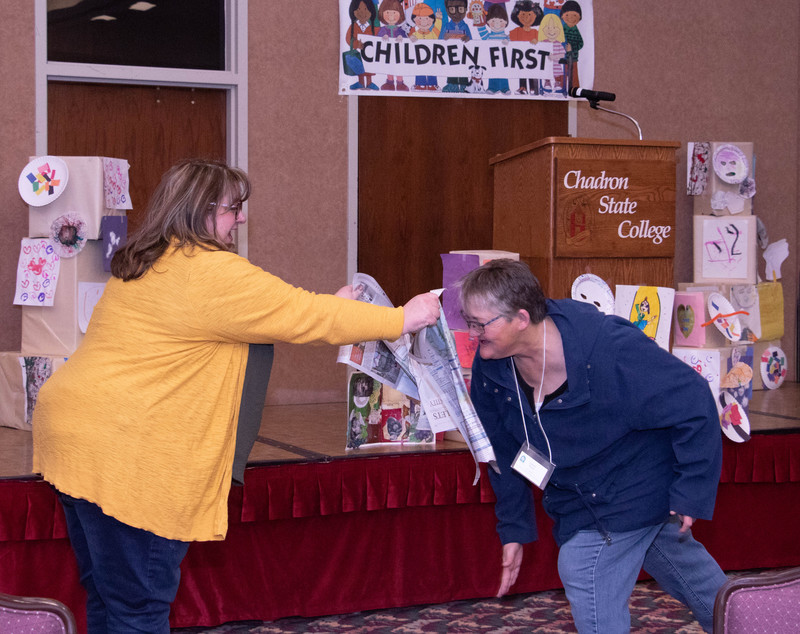Shumaker promotes 'Renegade Rules' at Early Childhood Conference

CHADRON – Heather Shumaker, author of two books about pre-school play, spoke about her renegade rules for pre-school children at Chadron State College’s 30th annual Excellence in Early Childhood Conference Saturday. Dr. Kim Madsen, professor in the School of Applied Sciences, said the event was well-attended by child care providers from the region, as well CSC students studying Family and Consumer Science and Elementary Education.
Shumaker’s books, “It’s OK Not To Share and Other Renegade Rules for Raising Competent and Compassionate Kids,” and “It’s OK to Go UP the Slide,” challenge some traditional methods for teaching pre-school children.
As a graduate and advocate of the School For Young Children in Columbus, Ohio, Shumaker embraces the school’s philosophy that children be allowed to progress at their own pace in an environment of free play enriched with a variety of creative materials and the support of teachers who respect them as individuals.
“There’s a visible difference between children taught with this method and those who are not. The children who do this are grounded. They don’t freak out when things don’t go their way. The skills they learn last a lifetime,” she said.
She acknowledged teachers may initially be uncomfortable with her ideas about children’s rights. Among the rights she listed were the right to follow the natural course of child development and the right to plentiful, uninterrupted play, including loud, physical play with some risks involved.
She bemoaned what foreign child development specialists call the American question: “How can we speed up child development?”
“We’re not supposed to speed it up. Kids can’t cope with that pace. The more we try, the more problems we cause,” she said.
She described traditional pre-school methods as quieter and less messy.
“But they don’t create fully developed human beings,” she said.
Forcing children to share toys is a violation of uninterrupted play and backfires causing children to stockpile or hide toys from others, according to Shumaker.
“There are complex conditions that need to be met before we, as adults, will share certain items and even then some things are off limits. That’s a lot for a child to sort through,” she said.
The time children take with their favorite toys tends to get shorter as theytrust the toys will be there the next day and understand the no forced sharing policy. She said if a child ever insists on keeping a toy all day, she writes a note that reminds both of them the toy is open for others the following day.
“It’s OK not to share. This will involve some difficult moments of waiting, for both you and the other child. This supports natural moral development. It also stops rewarding the manipulation of those children who tattle on others for not sharing,” she said. “When you wait until a child is all done, it feels good for them to share naturally. They get a golden rush from this and will want to do it again and again.”
Schumaker said large blocks of play time will allow opportunities for children to master their emotions, and conflict resolution.
“With these coping skills, they will have a lifetime of good relationships with other humans and they are ready for anything,” she said.
She explained several ways to help children channel feelings of anger including hitting a newspaper stretched out and held by someone else, kicking an empty box, sword fighting with pool noodles or punching pillows.
She said if children can write down their feeling or have a teacher write the list for them, when they are calm, they learn meaningful literacy, sequential and math skills.
Shumaker advocated for healthy physical, social and creative risks while keeping children safe and supporting them.
“Safety is important, but it is second. If they think adults will always protect them from their mistakes, they aren’t careful. Mr. Concrete teaches memorable lessons. They might have to meet Mr. Concrete more than once. I did. Get kids to be partners in their own safety. This play builds resilience,” Shumaker said.
Regarding rough and tumble play, Shumaker advised child care professionals to resist blocking meaningful social interaction by telling children to keep their hands to themselves.
“Don’t assume it’s mean or violent. Active energy is not necessarily misbehavior. Instead, ask, ‘Are you both having fun?’ It’s important that you don’t shut it down completely,” Shumaker said.
She warned about technology and the example adults set when they disappear into the online world.
“The children assume the online world is better. You have to announce ‘I’m checking the weather to see if we can go to the park,’ or they will think you are playing a game,” Shumaker said. “Tech shuts out outdoor play, pleasure reading, imaginative play, dress-up, and practice with real-life conflict.”
Category: Campus Events, Campus News, Family and Consumer Sciences



